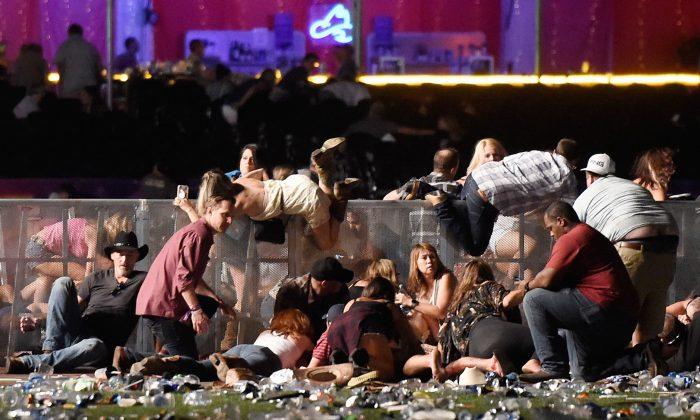Stephen Paddock fired on people attending an outdoor country music festival from a 32nd-floor hotel room in the Las Vegas Mandalay Bay Resort and Casino late on Oct. 1, killing at least 58 people and injuring more than 500. Videos show the chaos as people run and seek cover. Bursts of gunfire can be heard.
Details on the attack are still emerging, but according to Marc Ruskin, former FBI agent and author of “The Pretender: My Life Undercover for the FBI,” the sound of the gunfire strongly suggests Paddock was using an illegal weapon.





